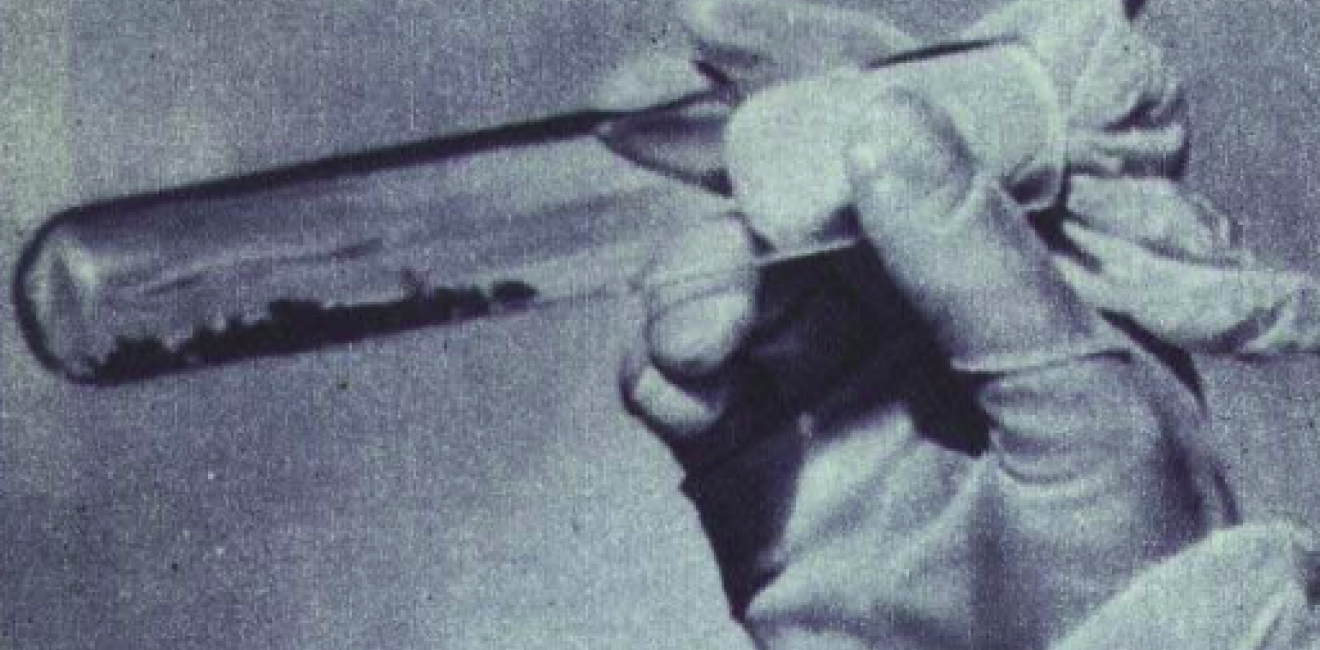The Korean War began on the morning of June 25, 1950, and ended a full three years later with an armistice on July 27, 1953. It was an incredibly destructive war, with as many as 4.75 million people, civilians and military, dying during the war. The level of destruction both in the North and the South was enormous.
The historiography regarding the war is also quite large. One seemingly small aspect of the war now seems quite esoteric and insignificant in the overall story, but that was not the case during the war. The USSR, China, and North Korea accused the United States of using biological weapons quite extensively over both China and North Korea. The accusations were probably the most prominent aspect of Soviet bloc propaganda used to oppose the war. Millions of people in both West European and East European capitals joined demonstrations demanding that the United States “Stop the Biological War.”
After the use of nuclear weapons on two Japanese cities in August 1945, the US was again being charged with employing one of the three “Weapons of Mass Destruction” – nuclear, chemical or biological weapons. Picasso painted a very large mural, which displayed the United States spreading germs during the Korean War, a successor to his internationally renowned painting, “Guernica,” memorializing the 1936-1939 Spanish Civil War.
The charge of US use of biological weapons began with an initial campaign starting on May 8, 1951, and lasting until July 1951. After a lull of half a year, the major campaign started on February 22, 1952, and lasted until the war’s end. The US government repeatedly denied the charges at the United Nations and demanded that an investigation by the International Red Cross be permitted. Western scientists uniformly ridiculed the allegations on multiple technical grounds. The World Health Organization offered on three occasions to investigate the charges. China and North Korea rejected all the requests.
With the death of Stalin on March 5, 1953, the Soviet Union stopped referring to the charges, and although they are not mentioned frequently, they have been officially maintained by the governments of China and the Democratic People’s Republic of Korea to the present day.
In 1998, 12 Soviet-era documents were obtained from the archives of the Central Committee of the CPSU, the first one from Mao Zedong to Stalin dated February 21, 1952. The other 11 were dated between April 13 and June 2, 1953, the months directly following the death of Stalin. They were transcriptions of an astonishing group of cables from the CPSU Central Committee to Mao Zedong, Kim Il Sung, Soviet ambassadors, and senior Soviet military officials in Beijing and Pyongyang, and their replies. The message from the CPSU CC to Mao Zedong on May 2, 1953, read:
"The Soviet Government and the Central Committee of the CPSU were misled. The spread in the press of information about the use by the Americans of bacteriological weapons in Korea was based on false information. The accusations against the American were fictitious."
The documents were published by the Cold War International History Project in 1998 in Volume 11 of the Bulletin, together with an accompanying paper. Although it was possible to informally verify the authenticity of the documents at the time, they were not available directly from Soviet archives and apologists for the China and the DPRK questioned their authenticity.
In 2015 and 2016, Russian government archives began to publish some of the documents, as well as some additional ones that had not been obtained in 1998. There was no longer any question of the authenticity of the documents, which a handful of propagandists for China and the DPRK located in the West had continued to question. Nevertheless, these documents must be only a very small fraction of those that were exchanged by Soviet authorities and the governments of China and the DPRK during the war itself concerning the false charges of BW use.
Two papers were published by a Chinese military historian in 2008 and 2010, which for the first time in any Chinese publication discussed the materials published by the CWIHP in 1998. It is conceivable that some officials in China might have been considering a change in the official Chinese position on this subject at that time. 2010 was also the year in which the Russian government archive RGASPI released six of the relevant documents. In 2013, a Chinese journal, Yanhuang Chunqiu, published the posthumous memoir of Dr. Wu Zhili, who had been the head of the Chinese People’s Army Health Division during the Korea War. The memoir had been written some 14 years before, prior to Dr. Wu’s death, but never previously published. Wu Zhili’s narrative made explicit that the Korean War BW allegations were false. It described in detail exactly how the fabrications were carried out in the field during the war.
These new Chinese materials resulted in a monograph published by the CWIHP in 2016, titled “China’s False Allegations of the Use of Biological Weapons by the United States during the Korean War.” A year after the publication of the memoir in Yanhuang Chunqiu, the government of Xi Jinping shuttered the journal.
False allegations of biological weapons use are damaging to the Biological and Toxin Weapon Convention, an international arms-control treaty signed by 183 nations, and to the international norm prohibiting the use of biological weapons. It is unlikely that the administrations of Xi Jinping and Kim Jong Un can be expected in the foreseeable future to announce that the governments of their countries fabricated the Korean War BW allegations and have maintained the fabrications for 67 years. But one can only hope that governments of the two countries will do that someday.







